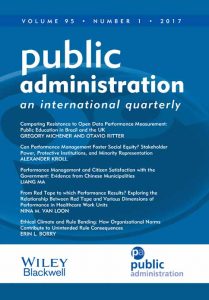'Where are all the grown ups?' The Scottish referendum shows the dearth of UK political heavyweights

Today Scotland faces a monumental decision. For once, politics is thrilling, anything seems possible, Scots seem excited and motivated to vote, with a record turnout predicted. By the time you actually read this, the outcome might already be known. In the last weeks before the referendum, the result has been too close to call, which considering a few months ago the ‘No’ campaign had a twenty point lead, is quite a dramatic shift. Whatever today’s result, it will be a close one – Scotland will either become independent, with a huge proportion of people having voted to stay in the UK, or Scotland will remain British, with a huge proportion having voted to leave. Lots of people will not be happy, and the blame game will begin. Whatever the result, this campaign has reminded us of politicians’ increasing inability to persuade voters – quite a depressing thought, when that is what politicians are supposed to be there for.
Consider the big political names of the ‘Yes’ and ‘No’ campaigns. It has basically been Alex Salmond Vs The World, with all major UK parties and politicians lined up against him. Yet, again and again, no-one has been able to get the kind of cut-through which Salmond enjoys. Prime Minister David Cameron has tried to appeal to Scots’ hearts, Chancellor George Osborne and his shadow Ed Balls have tried to appeal to their pockets, former Chancellor Alistair Darling and Labour leader Ed Miliband have tried to appeal to a Scottish sense of social justice. But the more they have talked, the less Scots have listened.
Speaking in a podcast for the (strongly pro-Union) Spectator magazine’s recent podcast, political editor James Forsyth bemoans the fact that none of the No camp politicians have been able to match Salmond’s appeal. “Everyone is waiting for a grown-up to come out and rescue the situation, but it turns out there aren’t any grown-ups any more.” The the No camp have wheeled out Gordon Brown, who as a former Prime Minister would certainly seem to be a political ‘grown-up’, and also has the twin advantages to the No campaign of being Scottish and not being a Tory. But let’s not forget that Brown is often polled as the least popular Prime Minister of the last thirty years, and hardly known for his charisma or his ability to rescue elections. (That said, his recent speech in Glasgow was more passionate and convincing than anything I saw of him when he held office. Which is probably not a coincidence.)
[youtube]https://www.youtube.com/watch?v=J39bBV7CBJk[/youtube]
Looking back to that 2010 election, we are reminded how none of the party leaders were able to connect with voters. Despite more media coverage than ever before, including the UK’s first ever televised leader debates and the brief fad of Cleggmania, no one party or leader galvanised enough support to form a commons majority. This isn’t just a recent development – recall Thatcher’s speech lessons to make her voice more palatable for TV and radio; Cameron’s past experience in PR and TV; Tony Blair’s infamously slick media spin machine. Even though politicians are spending more time and energy in managing their media profile, it doesn’t appear to do the political class as a whole any good at all. Cynicism is rife; voter turnout is low (this referendum excepted); and politicians are less trusted than estate agents.
Ian Katz, editor of the BBC’s flagship Newsnight show, recently suggested that this cynicism and apathy with politicians is partly due to the increasingly pointless spectacle of the political interview. Politicians on TV and radio avoid answering questions and give boring and predictable responses which do nothing to illuminate viewers and are often so ‘boring snoring’ that they act as more of a sleeping aid, rather than what they could and should be: a useful medium of democracy and accountability. The Independent’s Steve Richards agrees that politicians see interviews as damage-limitation exercises, as “they cannot reply [to questions] with candour without splitting their party or destroying their career”. By far the most-watched ‘political interview’ of last year did not even involve a politician at all: Jeremy Paxman’s interview with Russell Brand struck a chord (and was seen 10 million times on YouTube alone) because Brand perfectly articulated the frustration and lack of confidence which so many people have in our politics and our politicians.
[youtube]https://www.youtube.com/watch?v=3YR4CseY9pk[/youtube]
Andreas Schedler, author of The End of Politics? argues that “the political sphere suffers from intrusion and foreign occupation by the logic of theatre and drama, rock and roll, sports and entertainment, design and advertising, the fine arts, television, religious confession, psychotherapy and intimacy” (2013, 13). To an extent, I would agree with this summary, politics is increasingly the art of The Spectacle. Yet politicians are still expected to have ideas and policies, as well as an ability to arouse passions with their rhetoric and look good on TV chatshows. No wonder so many of them fall short of our expectations.
While we are right to criticise our mainstream politicians for their policies and their (lack of) ideological imagination, perhaps we should be more sympathetic in terms of the presentational burdens we place upon them. The celebrity-oriented media has made us all far too demanding, and thus all too easily disillusioned. Politicians are expected to show leadership, yet to act as ‘normal people’ as well. We want politicians to be inspiring speakers, but not to be aloof. They need to be hard-headed on Newsnight, and funny on Have I Got News For You. We want them to be educated and professional, but not too ‘intellectual’ (Did you know Gordon Brown had a PhD?). They need to look as comfortable holding a lectern as they do holding a pint.

Perhaps there is just a lack of political heavyweights at the moment, and we just have to wait for new ‘grownups’ to enter politics. Maybe this current void will have helped Salmond, arguably the only heavyweight currently on the political scene. Maybe not. Fortunately in the case of this referendum, the seriousness of the actual arguments over independence seem to have taken priority over personalities, and the people of Scotland seem to be genuinely engaged in politics for once. One wonders how long this enthusiasm will last. In the long run. whatever happens in Scotland, the growing communication gap between the elected and the electorate should concern us all.
Schedler, A. (1997)”Antipolitics: Closing or Colonizing the Public Sphere” The End of Politics? Explorations into Modern Antipolitics. Ed. Andreas Schedler. London and New York: Macmillan and St. Martin’s Press, 1997.







Scots don’t need politicians to tell them what’s good for them though.